
Over the last year and a half, the global health pandemic, inequitable recession, urgent call for racial justice, and affordable housing crisis all overlapped in Southeast Seattle, and the nation. Community support had never been more essential.
SEED has consistently responded to challenges by centering the needs of our community, and we will continue to do so. The pandemic and resulting labor and materials shortages have made our work harder, fraying communication and slowing progress on maintenance and repairs. We are addressing these issues while continuing to help residents secure the services and resources they need and deserve.
For too long, low-income residents in Southeast Seattle have had less access to healthcare. In the late 1980s, SEED was part of a coalition that brought what is now called the Kaiser Permanente Rainier Medical Center to the neighborhood. This coalition secured more jobs for the community and actively recruited doctors and other medical providers to work here. This clinic is still active today and supporting our community.
When COVID hit, access to healthcare and reliable information was limited. Targeting diverse communities, KVRU 105.7 FM broadcast public health announcements in seven languages. This year the station hosted a series of COVID-19 forums focused on the impacts on indigenous communities, immigrant and refugee communities, and black communities. As vaccines became available in early 2021, SEED responded to the needs of our residents and worked with the city to bring vaccination events to SEED buildings, serving those with mobility and transportation issues.
COVID taught us that housing is healthcare. SEED kept our 1,100 affordable apartments operating and was even able to invest in major building improvements. From renovating seniors’ homes to making family apartments more climate resilient, we’ve worked to keep our residents in safe, healthy homes while we pursue plans to build more.
Many of the small businesses in SEED buildings are run by immigrants and BIPOC owners who often do not have sufficient finances to weather a crisis. From connecting them to resources for federal PPP loans to delivering PPE safety supplies, SEED worked to help them survive. We’re proud that we did not lose one commercial tenant in the last 18 months.
Our longstanding SEEDArts programs serve artists and creative entrepreneurs, many of whom faced huge losses of work because of COVID. Columbia City Gallery swiftly moved online, so that artists could continue to promote their work even though the Gallery was closed. We worked with the Columbia Hillman Arts & Cultural District to pay artists to design yard signs that brought art to the streets. And knowing audiences had shifted, Rainier Arts Center invested in livestreaming equipment so performing arts organizations could continue to reach audiences.
As we head towards a new year, SEED will continue to center the needs of the community, and work for a more equitable, affordable Southeast Seattle.
Michael Seiwerath, Executive Director
Tonita Webb, Board President
November 2021
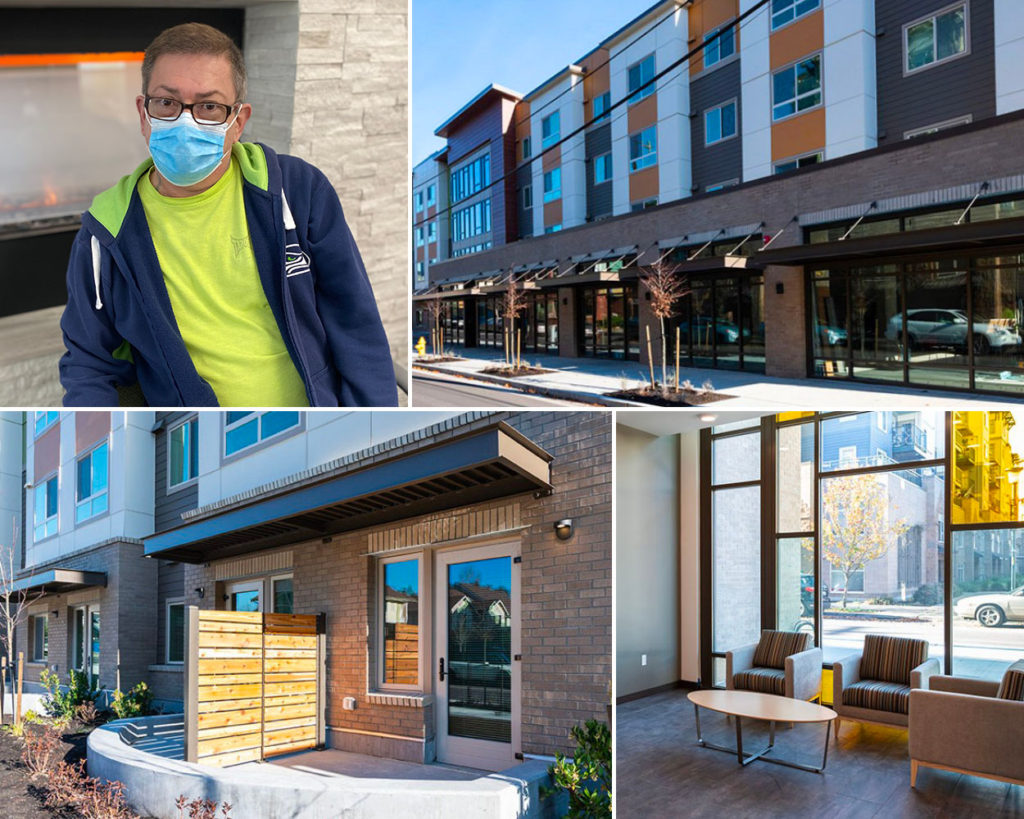
SEED built the Spokane apartments because Seattle’s aging population needs affordable places to live. From 2000 to 2030, King County is projected to go from 10% to 18% seniors. And today, over half of the households with seniors in our region are paying rent that is unaffordable.
We’ve known for years that communities of color are the most vulnerable to displacement and the area with the greatest risk of displacement is Southeast Seattle. Living on fixed incomes, seniors are facing unprecedented pressures and many are having to move farther away from family, community, and medical care. When seniors can age in place, they are less isolated, they can remain in community and thrive. With 81 one- and two-bedroom affordable apartments, the Spokane is an important part of the solution. Next to the Post Office, a grocery store, a pharmacy, a major bus line and a future city park, the Spokane has created a wonderful community.
Completed just before the pandemic, the Spokane has provided seniors and disabled residents a dignified home in a city where they may not have been able to afford a place to live. This spring, we worked with the city to host pop-up vaccination events for seniors who live at the Spokane and other SEED buildings.
We are able to build more affordable apartments because of key partners like the City of Seattle, the state, and many more. We do this work to make homes for residents like Parnell. Read his story below.
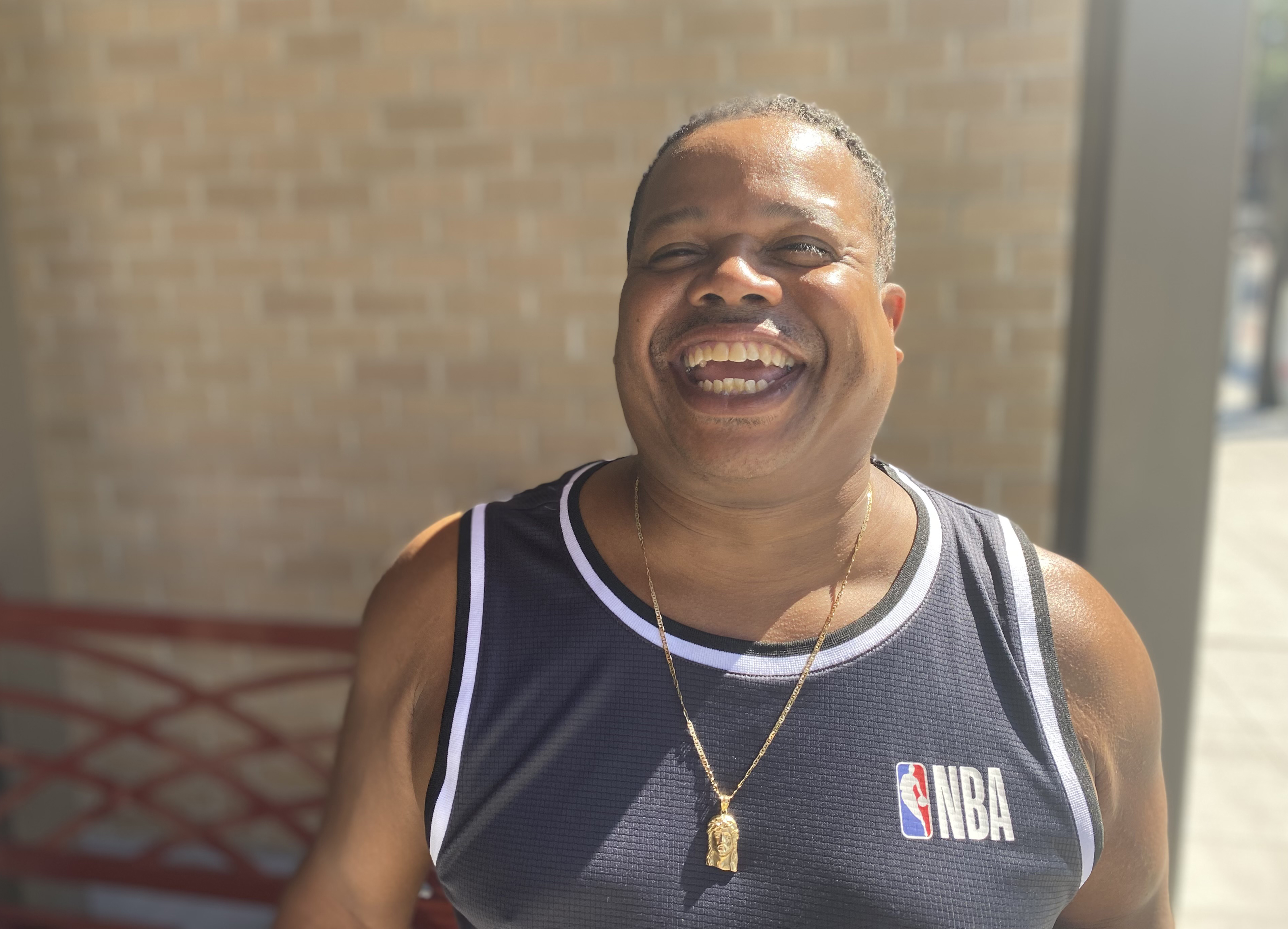
“We got back on our feet!”
Parnell was born in New Orleans, but has called Seattle home since the 1970s. His dad worked at Boeing and the family loved living in the Central District and Rainier Valley. In recent years, Parnell worked as a cook at the beloved Mel’s Market in downtown Seattle. When Mel’s recently closed for good, Parnell was out of work and struggled to pay rent. Parnell and his girlfriend Marie ended up living with other people and then finally living in a hotel outside of Seattle for months. The weekly cost of the hotel was a huge financial burden.
When the Spokane opened, it allowed Marie and Parnell to move back to Seattle and the Rainier Valley. “It worked out perfectly. This is where I grew up,” said Parnell. With a stable home, “we got back on our feet!”
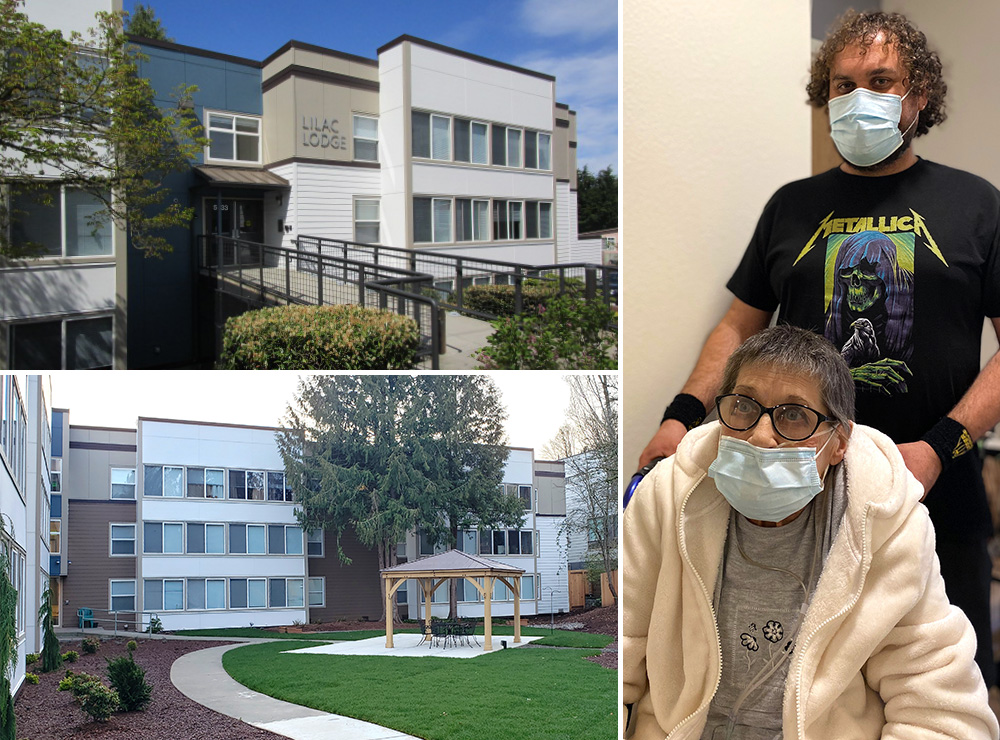
SEED recently completed substantial renovations to the Lilac Lodge apartments, located in the Columbia City neighborhood. Originally built in the 1960s, SEED acquired the building in the 1990s. Even though this is a senior housing building, it did not originally have an elevator. As part of the renovation, SEED improved the community and computer rooms, added more garden space, and most importantly, installed an elevator. Carroll Mulder, one of the building’s residents, said of the renovations: “It’s wonderful! We needed the elevator!”
Most of the folks who live in the building are seniors with very low, limited incomes. SEED buildings like Lilac Lodge offer an affordable place to live within the city, close to local businesses and services. SEED is so appreciative of our development partners: The City of Seattle, CliftonLarsonAllen, Coast Property Management, HUD, Johnson Braund Architects, Kantor Taylor, Lument, and Ryan General Contractors.
Vaccines for Residents
When Joseph received his second COVID vaccine in March, he said: “I have underlying health issues and this will give me a safety net.” Joseph lived in central Seattle for decades until he could no longer afford to live in the city. In late 2019, Joseph was the very first resident to move into the Spokane, which brought him back to the community he loves.
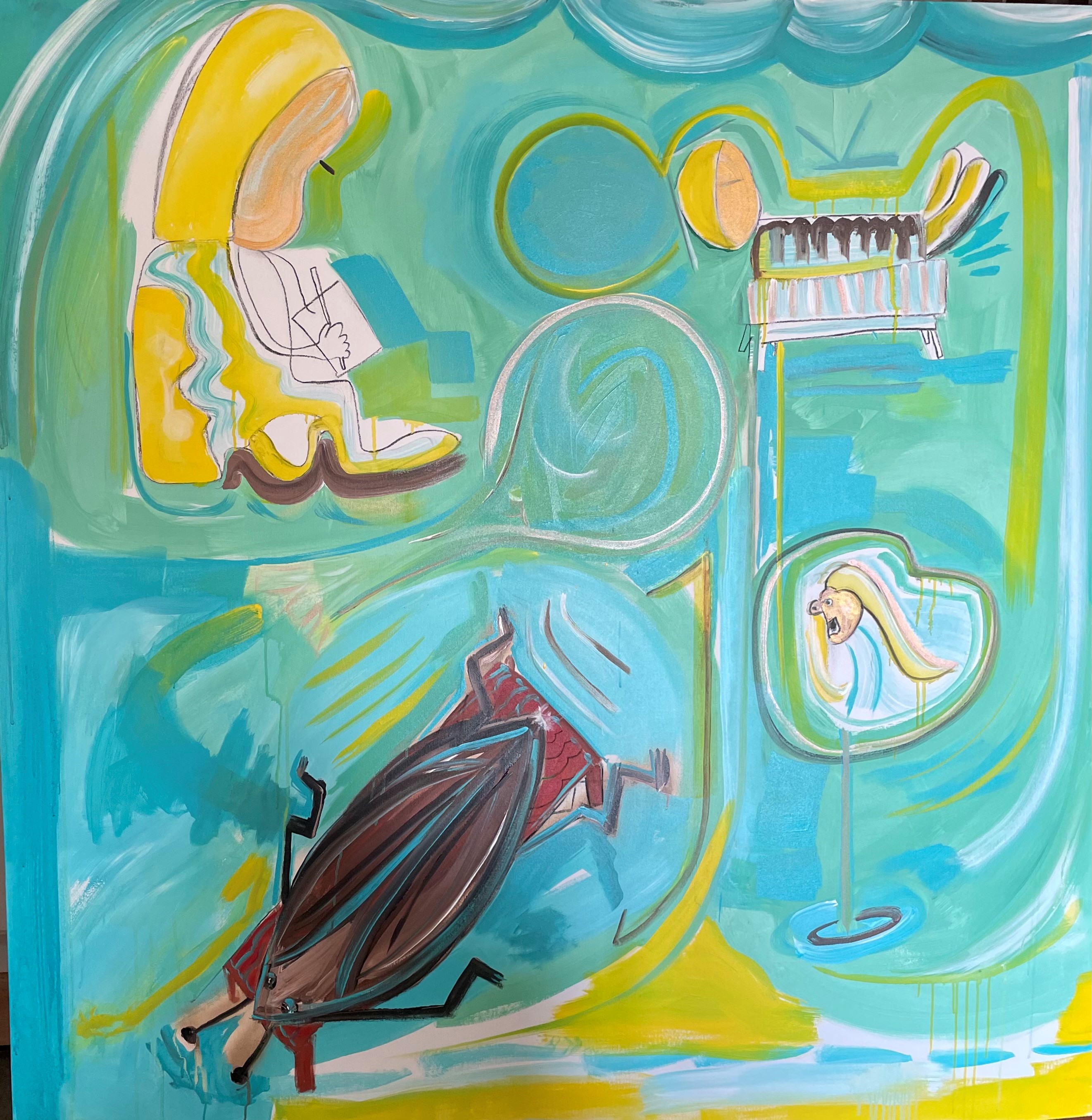
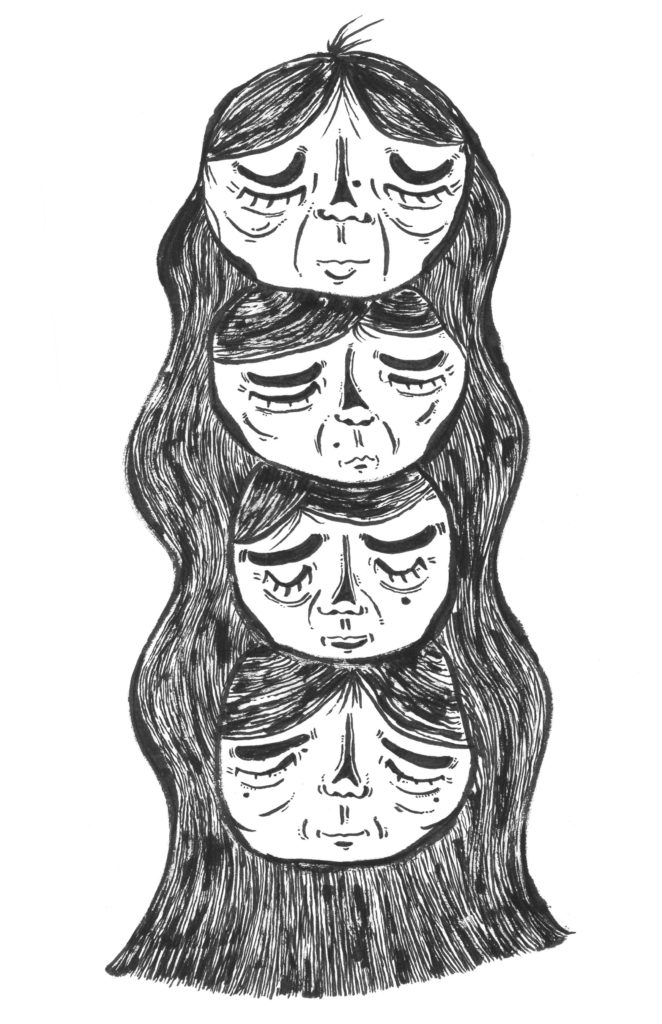
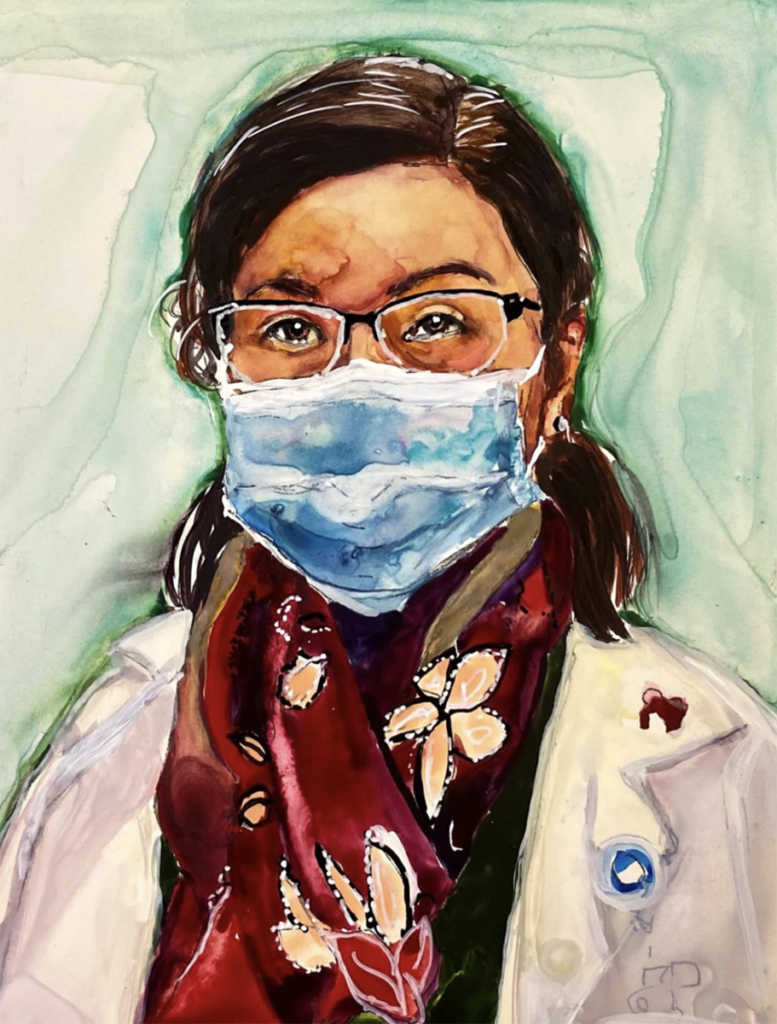
As with so many other community spaces, Columbia City Gallery had to close in early 2020. We created an online shop on the Gallery’s website to allow member artists to sell their work. Members also set up artwork displays in the Gallery windows for folks to view as they walked through the neighborhood.
The Gallery received funding from the NEA for two exhibits on healing through the arts. The Resting Place, which examined the intersections of grief, migration, and cultural identity among Filipino Americans, was one of the first exhibits after the Gallery reopened.
In early 2021, the Gallery exhibited 150 portraits of healthcare workers on the front lines of the pandemic, by Seattle artist Jayashree Krishnan. The Caring for Humanity project spoke to the crisis of our time and received coverage by several news outlets including CNN.
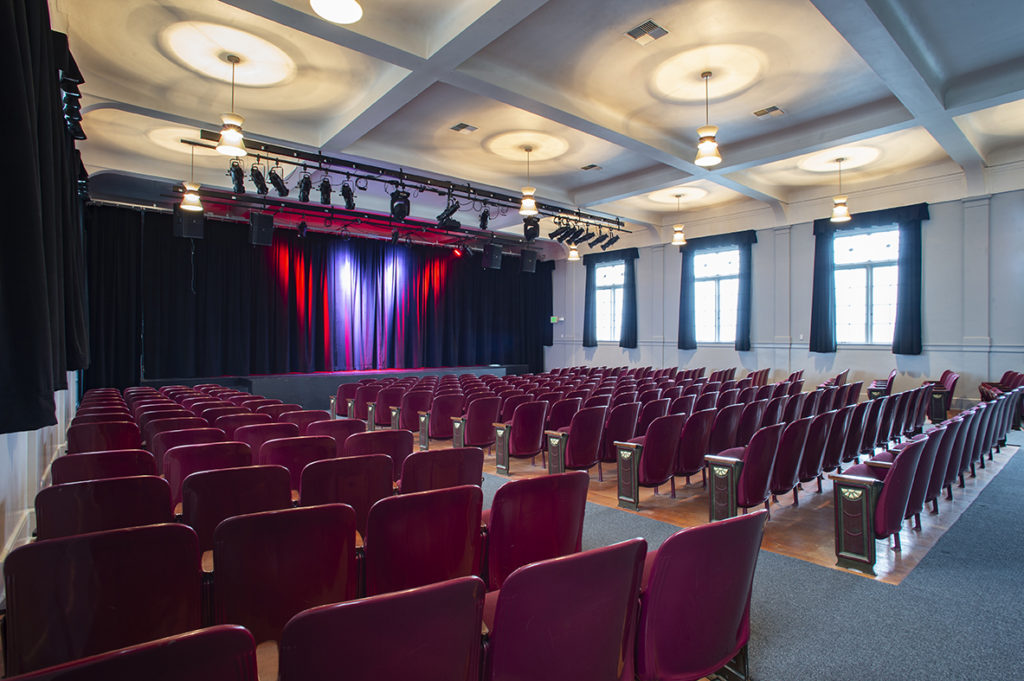
Although Rainier Arts Center had to be shuttered for most of 2020, we were able to complete extensive renovations and upgrades during that time, including new digital light and sound systems, improved ADA seating, and backstage amenities. Responding to requests from arts organizations, we equipped the auditorium to livestream performances.
In May, local theater company The Willams Project presented some of Seattle’s first outdoor performances of the year from the Center porch. We activated this outdoor space at the Center all summer with theater, music, and other cultural events.
We are grateful for the generous support of our donors.
| 4Culture |
| City of Seattle Department of Housing |
| City of Seattle Department of Planning & Community |
| Wells Fargo |
| Seattle Foundation |
| Washington State Department of Health |
| Washington Women’s Foundation |
| U.S. Small Business Administration |
| ArtsFund |
| ArtsWA |
| City of Seattle Office of Arts & Culture |
| Kelly Foundation |
| Working Washington |
| McEachern Foundation |
| National Endowment for the Arts |
| Fales Foundation |
| Hugh and Jane Ferguson Foundation |
| Paul G. Glaser Foundation |
| U.S. Bank Foundation |
| Archibald Foundation |
| Tulalip Tribes Charitable Fund |
| Washington State Arts Commission |
| Eileen Fisher Inc. |
| Apple |
| Anonymous |
| Marsha Conn |
| Katharyn Gerlich |
| Christine and Kevin Lee |
| Cary Moon and Mark Reddington |
| Xandra Rarden |
| Marjorie Sampson |
| Damian Stack |
| Vivienne Strickler |
| Sol Villarreal |
| Tonita Webb |
| Karen Wong |
| C Christina Wright |
For over 45 years, SEED has led efforts to improve the quality of life in Southeast Seattle. Your support makes it possible for us to continue this vital community-centered work.